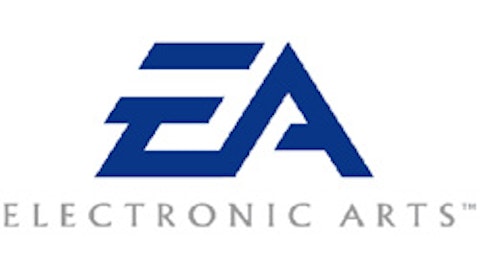When it comes to investing, not all industries are equal. Some, like airlines, have a long history of periodic bankruptcies burning anyone who would dare to buy stock. Others, like utilities, have a tendency to produce regular returns for those who can stomach periodic volatility.

Video games increasingly appear to fall within the former category. Struggles at companies like Electronic Arts Inc. (NASDAQ:EA) and Zynga Inc (NASDAQ:ZNGA) highlight a recent rocky history, to say nothing of past bankruptcies.
EA’s CEO steps down after disappointing tenure
After the market closed Monday, Electronic Arts Inc. (NASDAQ:EA)’s CEO John Riccitiello announced his resignation. Along with his exit, EA said the company’s earnings results would fall within the low end of their guidance range, suggesting a disappointing quarter.
Riccitiello had been on the job for nearly six years. Over that time, Electronic Arts Inc. (NASDAQ:EA)’s shares have declined by roughly 60%. Granted, when Riccitiello took the helm, the stock market was near a top. But with the recent rally, most stocks have regained their 2007 highs — not Electronic Arts Inc. (NASDAQ:EA).
EA has botched a number of flagship releases. Its Star Wars: The Old Republic was intended to challenge Activision Blizzard, Inc. (NASDAQ:ATVI)’s mega-hit World of Warcraft. But the game never even came close, peaking with about one-fifth as many players, and experiencing a gradual reduction in player base. The steady loss of subscribers was significant enough to convince EA to shift its strategy; ditching its subscriber model in favor of free-to-play.
More recently, Electronic Arts Inc. (NASDAQ:EA)’s much anticipated SimCity has drawn strong criticism from customers. In an effort to combat piracy, Electronic Arts Inc. (NASDAQ:EA) requires players to remain connected to the company’s servers while playing. But Electronic Arts Inc. (NASDAQ:EA) has had numerous issues with these servers, making the game unplayable for many. The company went so far as to offer customers a free game to compensate them.
Zynga’s recent rally hasn’t been based on traditional gaming
When Zynga Inc (NASDAQ:ZNGA) went public in 2011, it was seen as a play on an emerging trend: social gaming. The company has numerous popular titles like FarmVille and Mafia Wars which are free to play, but have spread virally across Facebook Inc (NASDAQ:FB).
Unfortunately for Zynga and its shareholders, the games have been unable to maintain their feverish popularity for more than a few months, creating a constant need to create new and better games. Zynga Inc (NASDAQ:ZNGA) sank $210 million into OMGPOP last March, only to find that its biggest game, Draw Something, had collapsed in popularity in just a few weeks.
Those who bought into Zynga Inc (NASDAQ:ZNGA) around the time of its IPO have likely lost significant capital, as shares are down about 63%. In the last three months, shares have rallied, but not on Zynga’s video games.
Zynga’s recent resurgence has been built on hope that the company could transfer its technical skills from creating social games to creating online gambling games. The legalization of online gambling in Nevada and New Jersey has fueled a speculative move in Zynga shares.
Zynga already has an online poker game, and in theory, it should be able to monetize this game in a world of legal online gaming. The company also began hiring for the switch, taking executive Maytal Ginzburg from 888 Holdings — a foreign online gaming company.
Those who bought Zynga Inc (NASDAQ:ZNGA) at the bottom are enjoying the run, but what does it say about the video game industry when a company has to convert to gambling to reward shareholders?

